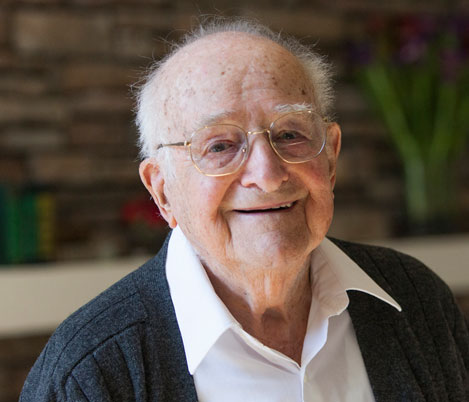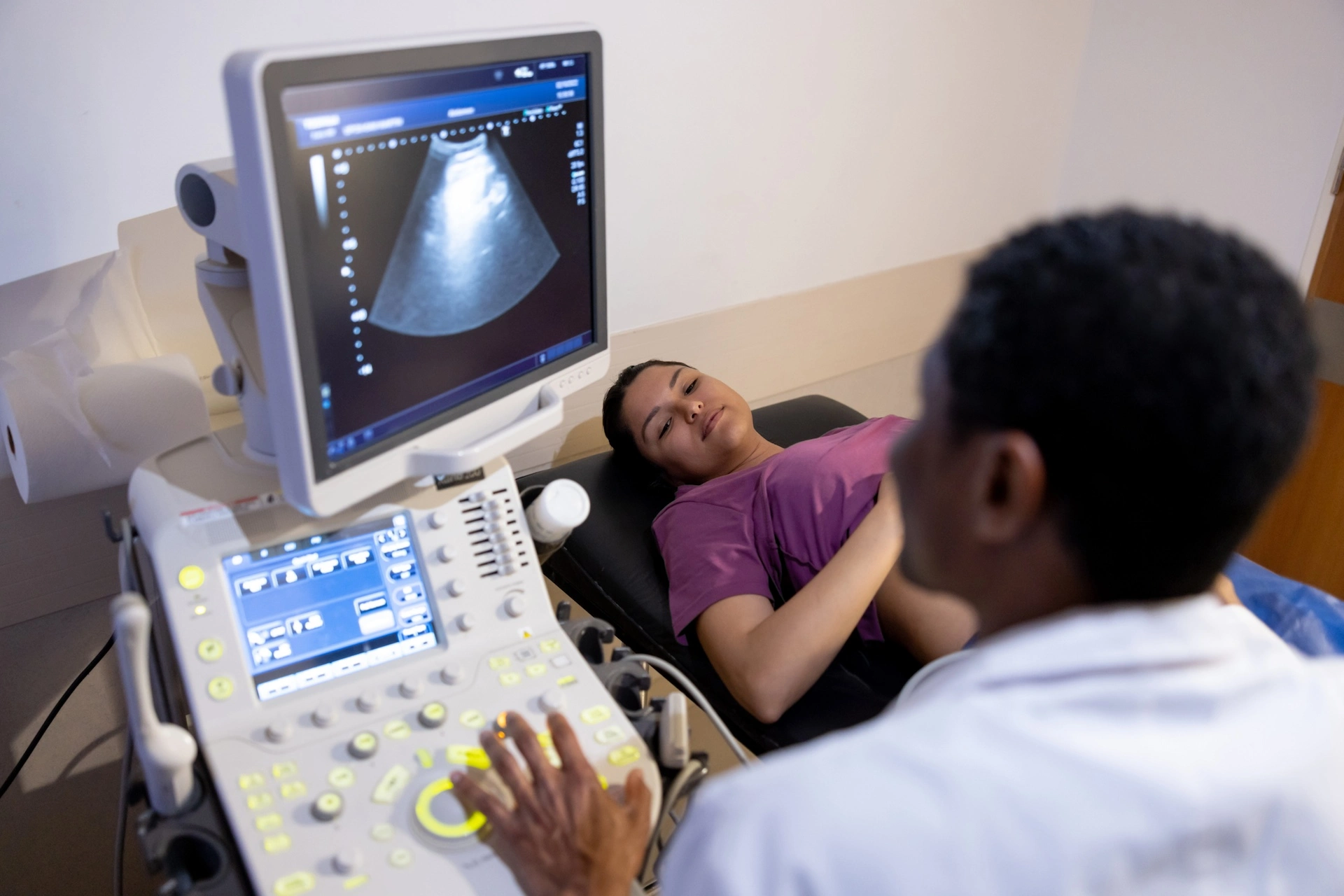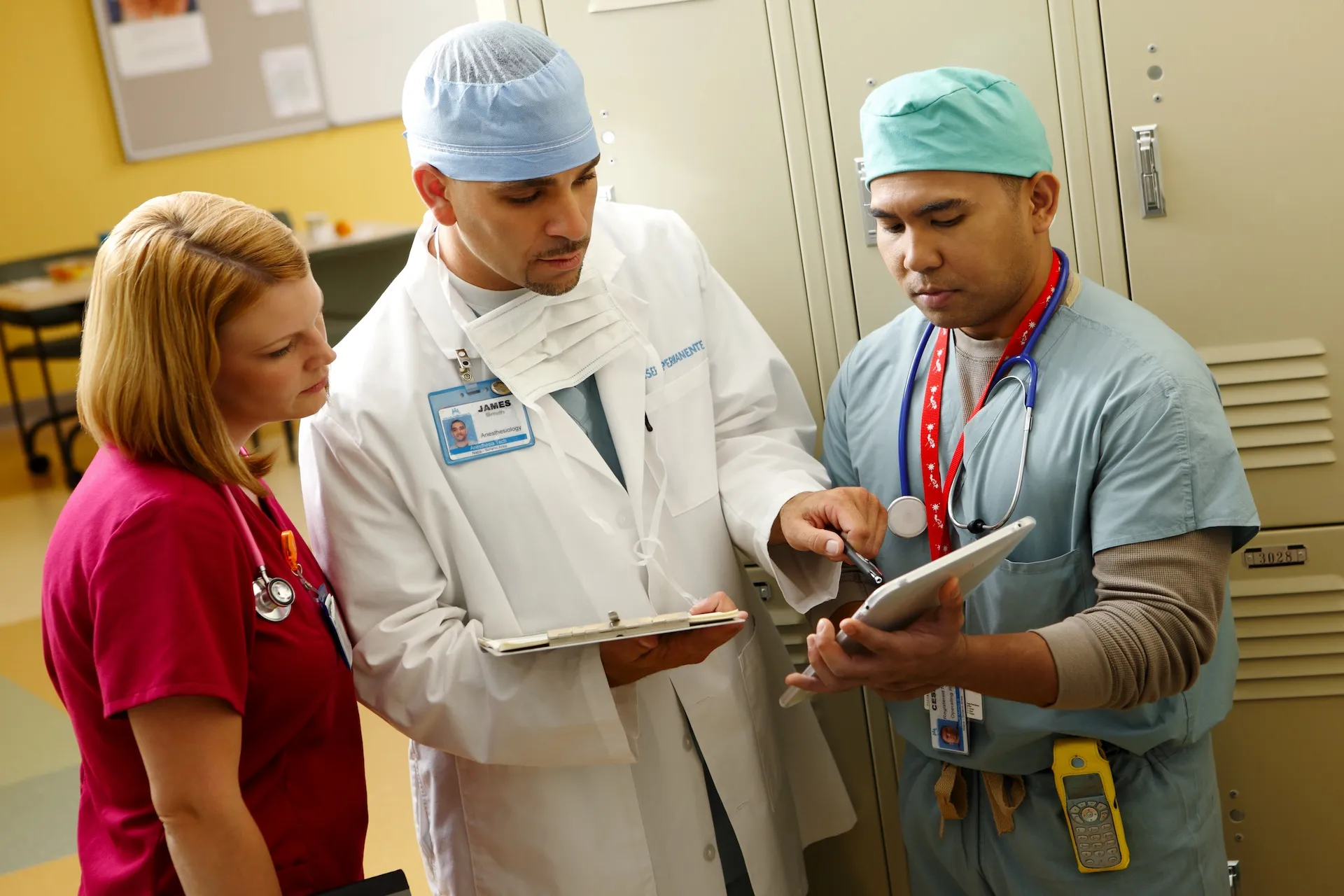Morris Collen, MD, pioneer of computer-assisted health care, celebrates his centennial.
Multimedia show: Dr. Morris Collen: A Remarkable Story
In 1961, Sidney R. Garfield, MD, founding physician of Kaiser Permanente, asked his colleague Morris F. Collen, MD, an internist since 1948 and one of seven founding partners of The Permanente Medical Group, to attend a conference on biomedical electronics.
“[Dr. Garfield] thought the time had come for doctors to use computers in patient care,” Dr. Collen wrote several years ago. “Of course, he was right; and I found this meeting in New York to be very exciting.”
Upon his return, Dr. Garfield established the KP Department of Medical Methods Research (now the Division of Research) and put Dr. Collen – who had originally trained as an electrical engineer — at the helm.
Led by Dr. Collen, Kaiser Permanente harnessed the power of the computer to start a new era in preventive medicine. In a battery of tests and procedures that were part of an annual comprehensive physical exam, Dr. Collen’s team in Oakland screened 25,000 patients annually for underlying conditions such as heart disease, diabetes, and cancer. Results including lab analyses were fed by punch card into what was considered at that time to be a huge IBM mainframe. Information was then available to help doctors make informed decisions.
Over the next 50-plus years, scientists with the Division of Research and across Kaiser Permanente pioneered the science of using patient data to aid in medical decision-making and to continuously improve care.
Dr. Collen, who turns 100 on Nov. 12, will be honored by the American College of Medical Informatics at a symposium in San Francisco, on his birthday. We talked to Dr. Collen at his home in Walnut Creek, where he is busy completing an update to his 1995 book, A History of Medical Informatics in the United States, 1950–1990.
What were your initial thoughts about the potential of medical data to transform care?
In the 1960s I first wondered, how do I use this technology to preserve Dr. Garfield’s vision? If a computer makes a mistake, a patient might die. I was really worried. But Dr. Lester Breslow, California’s director of public health at the time, was promoting the idea of bringing people to one place to do health screenings, which he called “multiphasic screening.” So we got the program started in Oakland for the longshoreman’s union, and then we used the computer to manage all the information.
How did computers first help doctors to make decisions?
One day, Dr. Cecil Cutting (then TPMG director) was showing a visiting senator from Washington, DC, Kaiser’s screening program. The computer was printing out a patient’s summary report and the senator asked me, ‘What does this mean?’ I said, ‘This patient has an abnormal blood count, and the computer is saying to “consider leukemia”.’ The next morning the senator called me and said, ‘What did they find out from the computer report?’ And I said, ‘The patient has early, chronic lymphatic leukemia and is already in treatment.’ Well, that’s when we got a lot of money from Washington to do automated multiphasic screening.
Was there concern that the computer would replace the physician?
Even early on we had what we called ‘advice rules.’ For the patient I referred to, the computer advised to repeat the blood test and consider leukemia.
We began to use formulas, based upon how often combinations of patient symptoms and signs occurred. With our large patient population, what we could do better than most was identify people with no significant abnormalities, and we used them to established normal test values for healthy people.
How have computers changed health care?
Now everybody has a personal health record. The technology has kept advancing. Our first computer took up a whole room. Now your smart phone has got everything that we had on the IBM 4400. You can go on your smart phone and pull up your Kaiser record! It’s fantastic! I can hardly believe it.
You’ve said that if there’s such a thing as reincarnation, you want to come back again as a Permanente physician. Why?
I would come back and essentially keep doing what I’ve been doing. Kaiser Permanente, to me, is the best. I’ve been all over the world to see health care systems — Japan, China, England, France, Germany — and Garfield’s vision is the best in the whole world. I like taking care of people and applying the best technology. That’s what a doctor does.





This Post Has 0 Comments